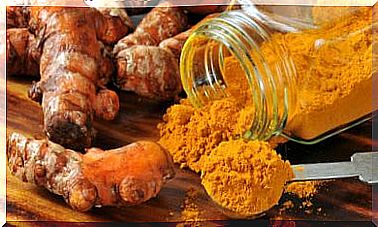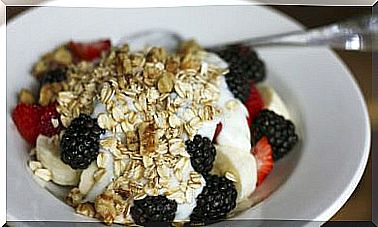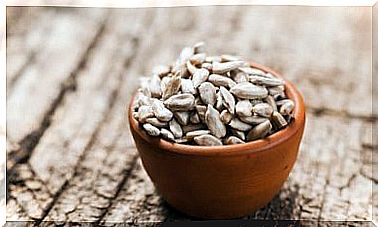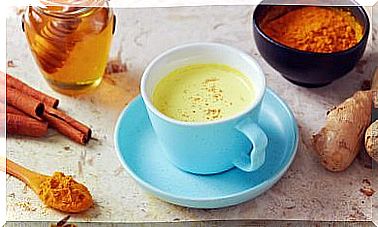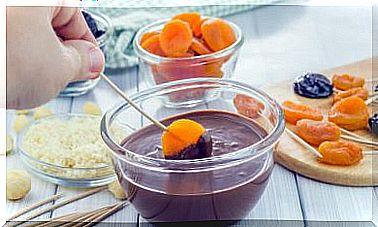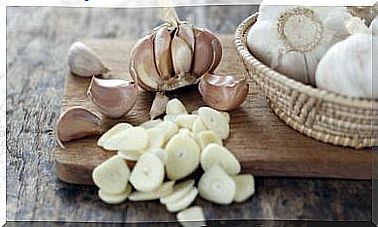What Is The Treatment Of Gastritis?
The treatment of gastritis consists of the administration of different types of drugs and a series of general recommendations to facilitate the patient’s digestive process (which is usually deficient when they have gastritis), as well as associated aches and pains.
The purpose of the different types of drugs that are prescribed is to combat various aspects: inflammation, pain, discomfort, among others that will be discussed in greater detail in the following.
Treatment of gastritis: general measures
Just as a pharmacological treatment is prescribed, the doctor will recommend the patient to take a series of additional measures to guarantee a speedy recovery. These measures are nothing more than healthy lifestyle habits that not only apply to the treatment of gastritis, but also to daily life in general.
- Eat frequent meals with sensible amounts.
- Avoid drinking alcohol.
- Do not eat food that is neither very cold nor very hot.
- Avoid fried, spicy, acidic foods, too spicy, etc.
- Do not lie down to sleep right after eating.
- Manage stress efficiently.
- Reduce tobacco use or quit smoking.
It is about having the disposition to want to take care of the organism and act accordingly. Remember, what should always come first is health.
Pharmacotherapy
The MSD Manual clearly indicates that regardless of the cause of gastritis, symptoms can be alleviated with drugs that neutralize (or reduce, as the case may be) gastric acid production.
Today we have a wide range of medications aimed at treating gastritis. It should be noted in this regard that, although these drugs may have different mechanisms of action, they do have an effective action in the body. Regarding its classification, it presents the following divisions:
- Antacid agents.
- Anti-secretory agents.
- Mucosal protectors.
Anti-secretory agents
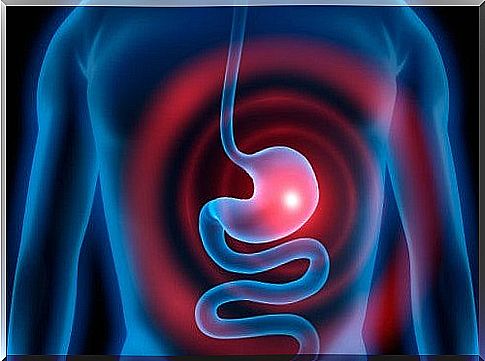
Within this group are proton pump inhibitors (PPIs) and H2 antihistamines.
How do proton pump inhibitors work in our body?
Proton pump inhibitors (PPIs) are actually prodrugs. That is, they are a pharmacological substance that is administered inactive and after undergoing its corresponding metabolization, it is activated and produces its effect.
In this way the PPIs reach the parietal cells (stomach cells) and are protonated thanks to the acidic medium. This creates a sulfonamide that binds to the cysteine residues of the proton pump, blocking it.
Therefore, antisecretors act in the final step of acid production producing an irreversible inhibition of the H * / K-ATPase pump, with a pH dependent binding being maximum at pH <6.
The pharmacological actions of PPIs are as follows:
- Dose-dependent inhibition of basal or induced acid secretion.
- Decrease in the secretion of pepsinogen and its transformation to pepsin, which is an enzyme secreted in the stomach, necessary for the digestion of proteins.
- Helicobacter pylori growth inhibition .
It must be taken into account that these drugs can produce different side effects such as: nausea, vomiting or diarrhea, which are transitory.
In the long term, these drugs promote hypergastrinemia, which is an elevation of normal gastrin levels and hyperplasia of cell populations in the mucosa. Within this group, the most commonly used drugs for the treatment of gastritis are:
- Omeprazole
- Esomeprazole
- Lansoprazole
- Rabeprazole
If the patient is taking another type of medication apart from PPIs, the doctor should be informed, since these drugs, when metabolized by the liver, can easily interact with others, producing undesirable reactions.
What about H2 antihistamines?
H2 antihistamines are drugs that competitively and reversibly block H2 receptors on parietal cells, the cells of the stomach. Based on this block, the pharmacological actions that are triggered are the following:
- Inhibition of basal acid secretion, so they are effective for patients with nocturnal acid secretions.
- Partial inhibition of stimulus-induced secretion, such as that induced by hormones or food.
- Decreased pepsinogen secretion, without affecting the pepsin concentration.
- Decrease in the total volume of gastric juice.
However, these drugs have gone into the background since IPBs appeared, since the latter have a series of advantages over antihitamins such as greater selectivity, greater potency of action, and greater systomatic relief. The most used are:
- Cimetidine.
- Rhinitidin
- Famotidine.
These drugs also have numerous interactions, so it is advisable to consult your doctor if you are taking any other medication. However, the secondary effects of these, in particular, are of little frequency and importance.
Antacid agents
Antacid agents are inorganic compounds that are capable of reacting with the acid secreted by the cells of the stomach, neutralizing it in the gastric lumen. So that:
- They raise the pH of the stomach. For this reason they should not be administered together with antisecretory drugs because these, for the most part, need the acidic pH of the stomach to exert their effect.
- They decrease the activity of pepsin.
Antacid agents are short-acting drugs that are often recommended in the treatment of gastritis. These antacids last about 3 hours with food in the stomach and about 20/60 minutes on an empty stomach. Therefore, antacids can be divided into two categories: non-systemic and systemic.
Non-systemic (slow and sustained action and no rebound effect)
- Calcium salts.
- Magnesium salts.
- Aluminum salts.
- Combination of the previous two.
Systemic (fast-acting, short-lived and with rebound effect)
- Calcium carbonate.
- Sodium bicarbonate.
- Antacids are drugs widely used by the general population, since they are easily available and achieve a rapid and effective symptomatic effect.
Mucosa protectors
Although these do not affect the production of acid, these drugs can prevent it from affecting the stomach. In this group, the following are recommended:
- Sucrafato. These are found in the acidic environment of the stomach, they form a sticky and viscous paste that adheres to the cells of the stomach, protecting them. Its use in combination with antacids should be avoided, because they reduce the pharmacological effect of sucralfate.
- Bismuth salts. They also form a protective layer on the mucosa, and further decrease the activity of pepsin. And specifically, bismuth ranitidine, inhibits gastric secretion. Besides, they also have bactericidal activity against H. pylori.
- Prostaglandin analogs. They participate in the maintenance of the mucosa against irritating agents. For example, misoprostol.
The treatment of gastritis can only be effective if the patient collaborates and follows the doctor’s instructions. This includes: being constant in medication and meal schedules, and avoiding any type of vices that may negatively affect the body.
In short, the treatment of gastritis does not pose too great a challenge for the patient who decides to be aware of his pathology in order to improve.
In summary
Beyond the specific etiology of the disease, these guidelines are usually part of the treatment of all patients with gastritis. These measures consist of:
- Diet without irritating substances. It is necessary to avoid taking copious, spicy meals, as well as aggressive foods and drinks for the gastric mucosa such as coffee, dairy products and alcohol.
- Drugs that protect the gastric mucosa :
- Oral antacids.
- H2 receptor antagonists, which decrease gastric secretion, such as rhinatidin.
- Proton pump inhibitors, the representative drug of this group is omeprazole. They are the most widely used group of drugs in gastritis, avoiding an excessively acidic pH in the stomach, avoiding possible complications such as gastric bleeding and gastric ulcers.
It should be noted that gastrokinetics (metoclopramide, domperidone and the like) can be added if there is evidence of gastric motility disorders.


